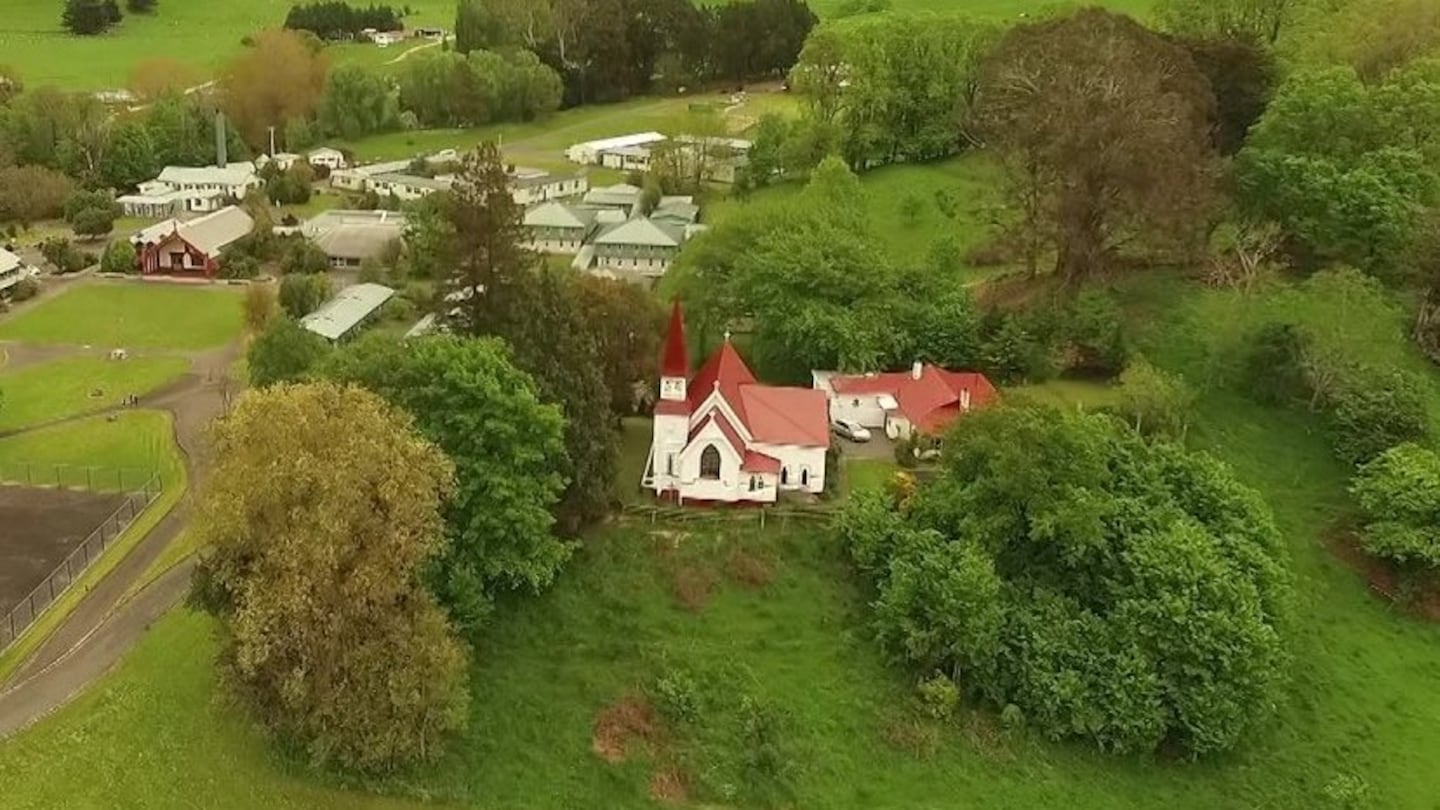Despite the devastation of Cyclone Gabrielle Te Aute College's Waka Ama team has found a little bit of relief in its build-up to next week's national competition.
The school's normal training venues in Hawke's Bay were disrupted by flooding and rāhui placed over them by mana whenua. But an old lake near the college's Pukehou location returned as a result of the heavy rainfall.
James Graham, an old boy of the college and a uri of local hapū Ngāti Tewhatuiāpiti, says Rotoakiwa was an ancient lake that was home to the ancestor Tara but it was drained by the government in the 19th century for the Wellington-Napier railway.
"Straight away the mauri of that lake over 150 years ago was directly impacted and through to the 20th century, it was really just used for duck shooting by our whānau. Interestingly in the 1960s speedboating was a popular sport and Rotoakiwa was used to hold regattas.
"But now it's really awesome to see these boys who, through whakapapa, actually connect back to this, which was once occupied and utilised by their tīpuna."
Situated between the Raukawa and Kaokaoroa Ranges in central Hawkes Bay, Rotoakiwa often refills with rainfall.
Ancestral waters return
The wet summer before the cyclone and the huge volumes of water dumped by Gabrielle has seen the lake return as never before. Graham says the water rose above the height of standard farm fences and had a depth of more than a metre.
"We suddenly had these massive roto reappear and that not only gave us the opportunity to see what our ancestral waters looked like in their former glory before they had been either shrunken or disappeared but also allowed conversations with the local farmers to let our boys to go down there with their kaiako of waka ama to go down there and practise.
"I did hear one story about the salt water having a bit more buoyancy than fresh water, so the boys had to adapt to paddling on fresh water. But yeah, it was actually really heartening to see."
As well as training for nationals, the opportunity to paddle five minutes down the road as opposed to an hour's drive also provided a wider learning opportunity.
Graham said many of the haukainga have been amazed to see their traditional taonga used the way it used to be.
Hopes Rotoakiwa will stay
"It's fabulous to see and wonderful to see these spaces being re-inhabited by language and also Te Aute, because of the connections."
The land for the school was gifted by Ngāti Te Whatuiāpiti who lived on the pā surrounding Rotoākiwa.
"So the boys have been able to utilise a taonga as a resource down the road to go and practise and, in doing so, also learning about the place and its relevance and its ability to holistically support through history."
Graham says if the Te Aute College teams do well next week at Lake Tikitapu, he hopes Rotoakiwa stays around a lot longer.
"Let's hope that through the changing landscape, the water actually holds its place in the roto to the extent that it has now."



